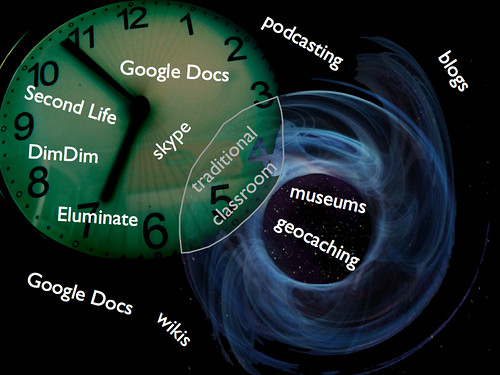... was the title of the Keynote address I gave to 500+ educators at this year's B.Y.T.E. conference. The sense I had of the audience was that many of the ideas I talked about here were new to them. A quick survey of the room while giving the talk revealed only about three people had heard of Wolfram Alpha and I think about the same number had heard of the TPACK Framework.
I hope I get a chance to do this talk again. There are a number of things I think I could have done better.
Anyway, if you're interested, here it is in various formats. You pick how you'd like to take it in.
Audio
Download (20 MB)
Slidecast
Ustream Video (thanks to Chris Harbeck
I hope I get a chance to do this talk again. There are a number of things I think I could have done better.
Anyway, if you're interested, here it is in various formats. You pick how you'd like to take it in.
Audio
Download (20 MB)
Slidecast
Ustream Video (thanks to Chris Harbeck
- 2/28/2010 11:47:00 am
- 7 Comments





